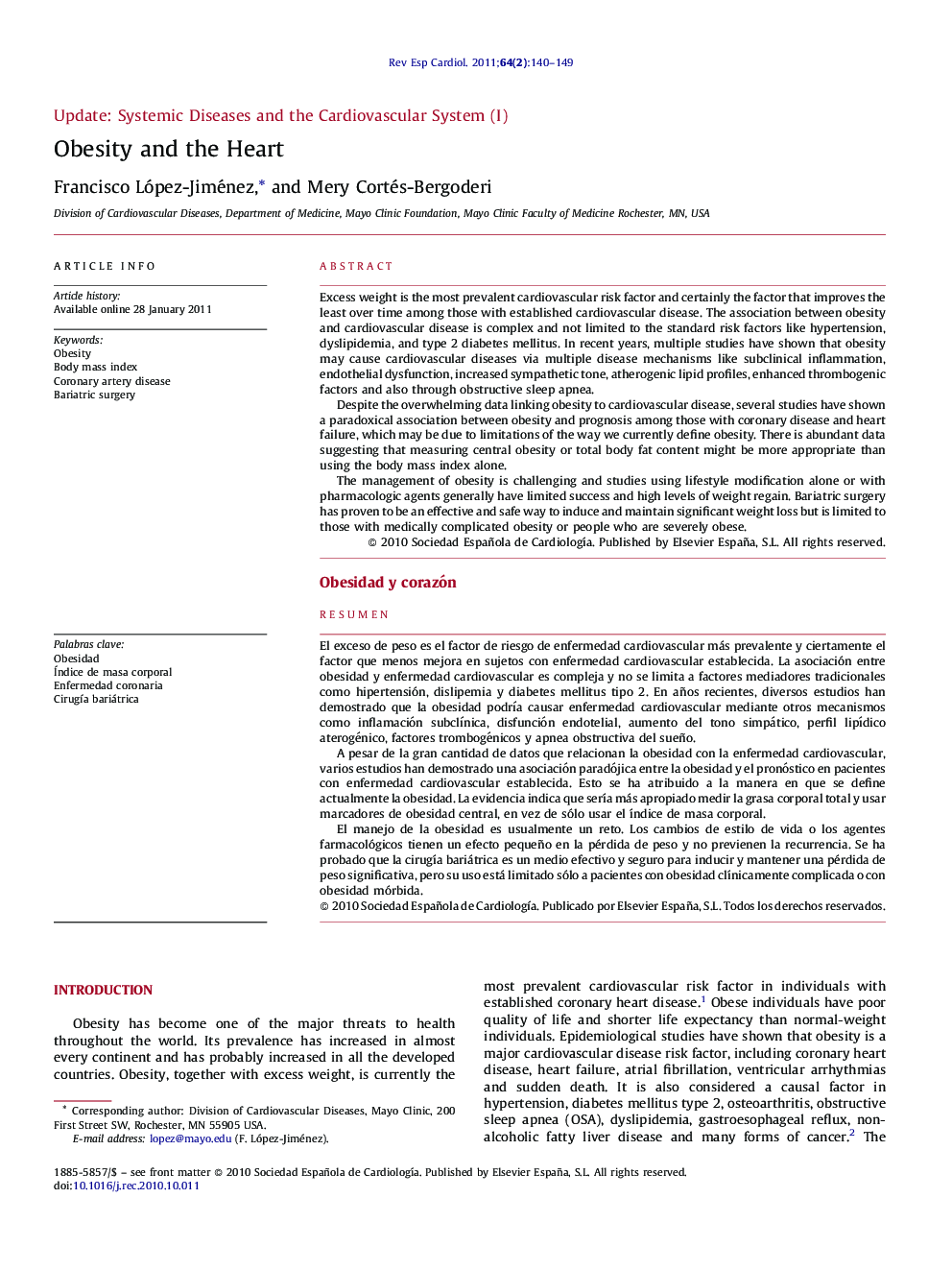| کد مقاله | کد نشریه | سال انتشار | مقاله انگلیسی | نسخه تمام متن |
|---|---|---|---|---|
| 3018358 | 1182167 | 2011 | 10 صفحه PDF | دانلود رایگان |

Excess weight is the most prevalent cardiovascular risk factor and certainly the factor that improves the least over time among those with established cardiovascular disease. The association between obesity and cardiovascular disease is complex and not limited to the standard risk factors like hypertension, dyslipidemia, and type 2 diabetes mellitus. In recent years, multiple studies have shown that obesity may cause cardiovascular diseases via multiple disease mechanisms like subclinical inflammation, endothelial dysfunction, increased sympathetic tone, atherogenic lipid profiles, enhanced thrombogenic factors and also through obstructive sleep apnea.Despite the overwhelming data linking obesity to cardiovascular disease, several studies have shown a paradoxical association between obesity and prognosis among those with coronary disease and heart failure, which may be due to limitations of the way we currently define obesity. There is abundant data suggesting that measuring central obesity or total body fat content might be more appropriate than using the body mass index alone.The management of obesity is challenging and studies using lifestyle modification alone or with pharmacologic agents generally have limited success and high levels of weight regain. Bariatric surgery has proven to be an effective and safe way to induce and maintain significant weight loss but is limited to those with medically complicated obesity or people who are severely obese.
ResumenEl exceso de peso es el factor de riesgo de enfermedad cardiovascular más prevalente y ciertamente el factor que menos mejora en sujetos con enfermedad cardiovascular establecida. La asociación entre obesidad y enfermedad cardiovascular es compleja y no se limita a factores mediadores tradicionales como hipertensión, dislipemia y diabetes mellitus tipo 2. En años recientes, diversos estudios han demostrado que la obesidad podría causar enfermedad cardiovascular mediante otros mecanismos como inflamación subclínica, disfunción endotelial, aumento del tono simpático, perfil lipídico aterogénico, factores trombogénicos y apnea obstructiva del sueño.A pesar de la gran cantidad de datos que relacionan la obesidad con la enfermedad cardiovascular, varios estudios han demostrado una asociación paradójica entre la obesidad y el pronóstico en pacientes con enfermedad cardiovascular establecida. Esto se ha atribuido a la manera en que se define actualmente la obesidad. La evidencia indica que sería más apropiado medir la grasa corporal total y usar marcadores de obesidad central, en vez de sólo usar el índice de masa corporal.El manejo de la obesidad es usualmente un reto. Los cambios de estilo de vida o los agentes farmacológicos tienen un efecto pequeño en la pérdida de peso y no previenen la recurrencia. Se ha probado que la cirugía bariátrica es un medio efectivo y seguro para inducir y mantener una pérdida de peso significativa, pero su uso está limitado sólo a pacientes con obesidad clínicamente complicada o con obesidad mórbida.
Journal: Revista Española de Cardiología (English Edition) - Volume 64, Issue 2, February 2011, Pages 140–149